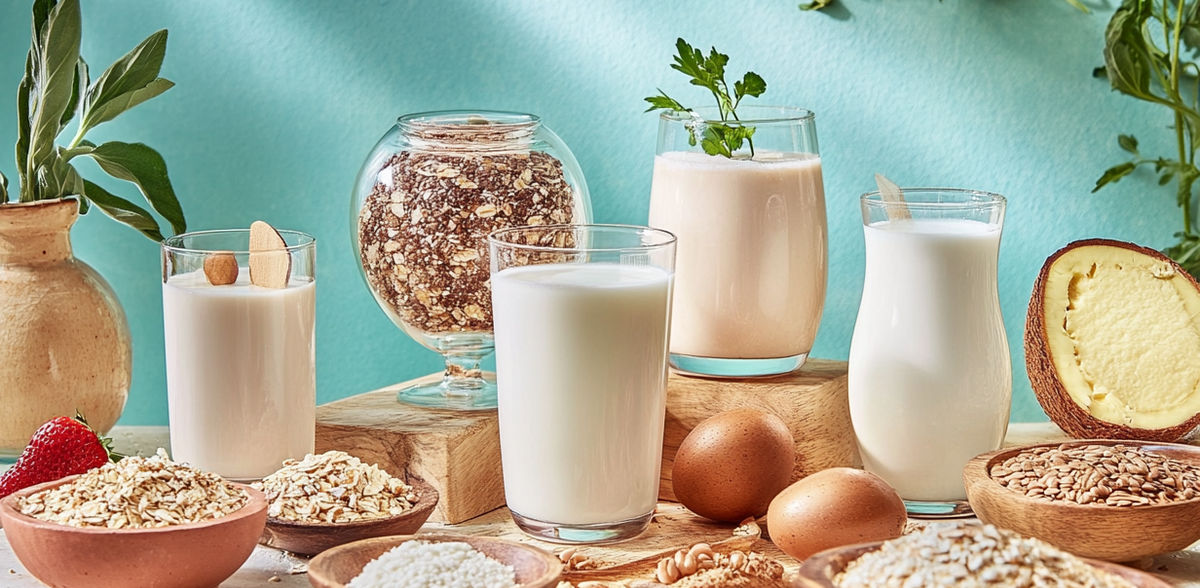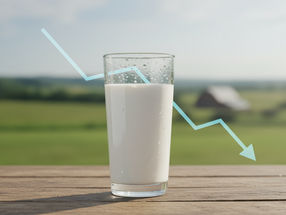Plant drinks: top or flop?
Tips for buying milk alternatives
Advertisement
Numerous drinks based on oats, soy, various nuts, rice, spelt, millet, peas, buckwheat and coconut can now be found on the shelves. And consumers are also increasingly turning to plant-based alternatives. Per capita sales of milk substitutes more than doubled between 2018 and 2022, while demand for cow's milk has been declining for years. In addition to climate and animal welfare, personal health also plays a role in purchasing decisions. Niklas Klinkhammer, nutritionist at the NRW consumer advice center, summarizes how consumers can make a good choice, because "the nutrient content differs considerably depending on the main ingredient and enrichments of the plant-based drinks."
- Nutrients in plant-based drinks Compared to milk, plant-based drinks primarily score points in terms of climate protection. However, their nutrient profile differs significantly. If you only consume small amounts of milk and dairy products or none at all, you may be missing out on important sources of calcium, iodine, vitamin B12 and B2, as these nutrients are hardly contained in plant-based drinks. Anyone who relies entirely on milk substitutes should therefore opt for fortified products to which the nutrients mentioned have been added, or make sure they have a sufficient supply from other sources.
- Composition of plant-based drinks Depending on the raw material base and recipe, the drinks contain different amounts of protein, fat, carbohydrates and calories. Drinks based on pulses, for example, are usually richer in protein than drinks made from cereals or nuts and can therefore make a better contribution to the protein supply. Soy drinks have roughly the same protein content as cow's milk - an advantage for people who otherwise tend to eat a low-protein diet. A look at the nutritional table provides clarity.
- Organic or conventional? Plant-based drinks that are enriched with calcium, iodine, vitamin B12 and B2 help to cover nutrient requirements if no or only a few dairy products are eaten. Unfortunately, such drinks are only available as conventionally produced products. Almost all of these are fortified with calcium, and many are also fortified with vitamin B12. Unfortunately, vitamin B2 and iodine supplements are not always found in the drinks. Due to the supplementation ban, organic products - with a few exceptions - may not be enriched with isolated nutrients. So if you prefer organic plant-based drinks, you should make sure you get the nutrients you need from other sources.
- Special case: calcium Cow's milk contains around 120 milligrams of calcium per 100 grams. Fortified plant drinks are based on this reference quantity. However, our body absorbs certain forms of calcium better than others. Calcium carbonate and Lithothamnium calcareum listed in the list of ingredients are more readily available than tricalcium phosphate. It is also important to shake the packet well before consumption, as calcium can settle to the bottom due to its poor water solubility.
Further information in the market check:
The recently revised market check by the NRW consumer advice center once again sheds light on the enrichment of the critical nutrients calcium, iodine, vitamin B12 and B2 in milk alternatives. From July to September 2024, the consumer advocates examined the composition of a total of 160 plant-based drinks from 22 different manufacturers - 38 from conventional and 122 from organic farming.
Note: This article has been translated using a computer system without human intervention. LUMITOS offers these automatic translations to present a wider range of current news. Since this article has been translated with automatic translation, it is possible that it contains errors in vocabulary, syntax or grammar. The original article in German can be found here.


































































